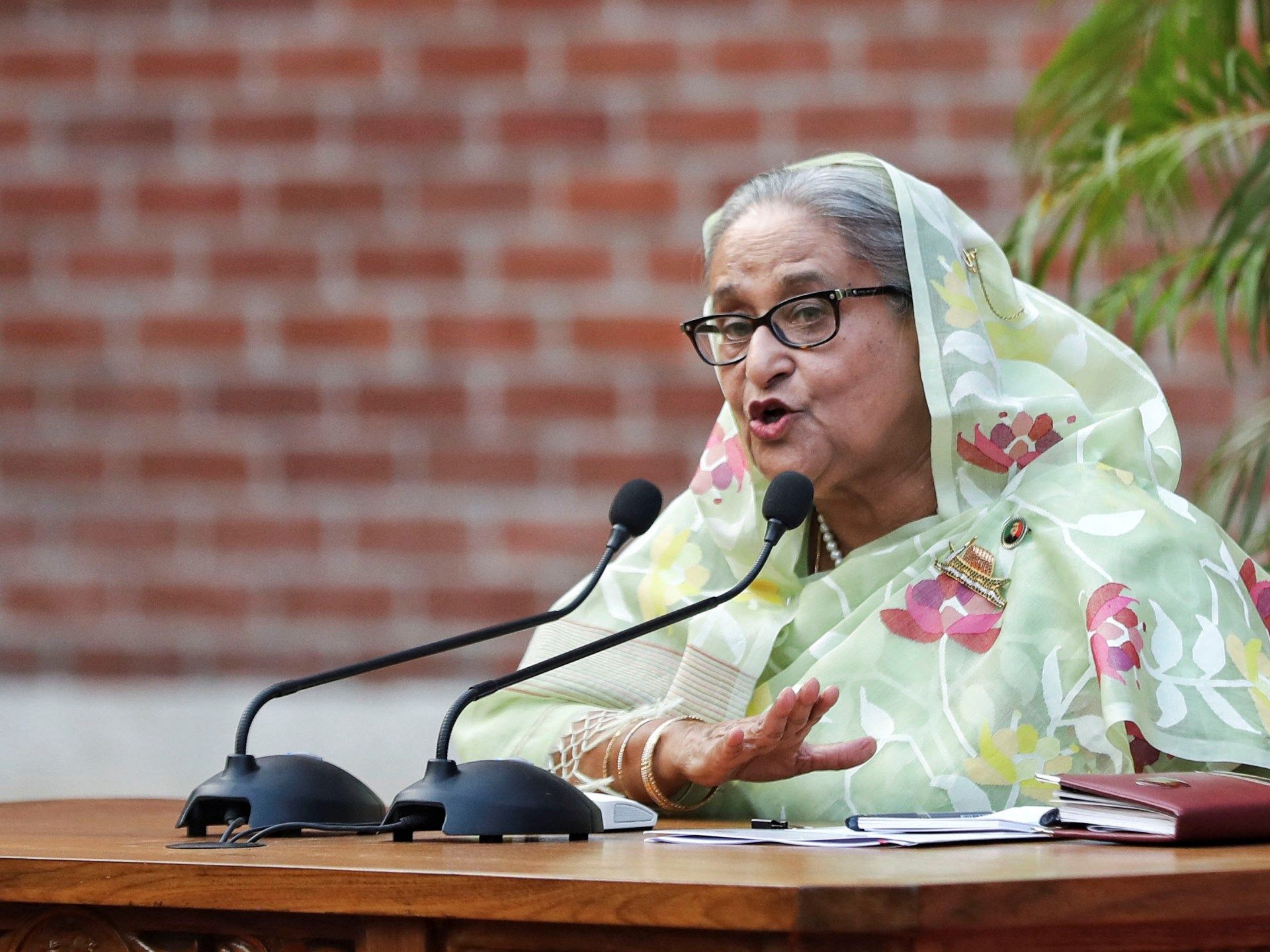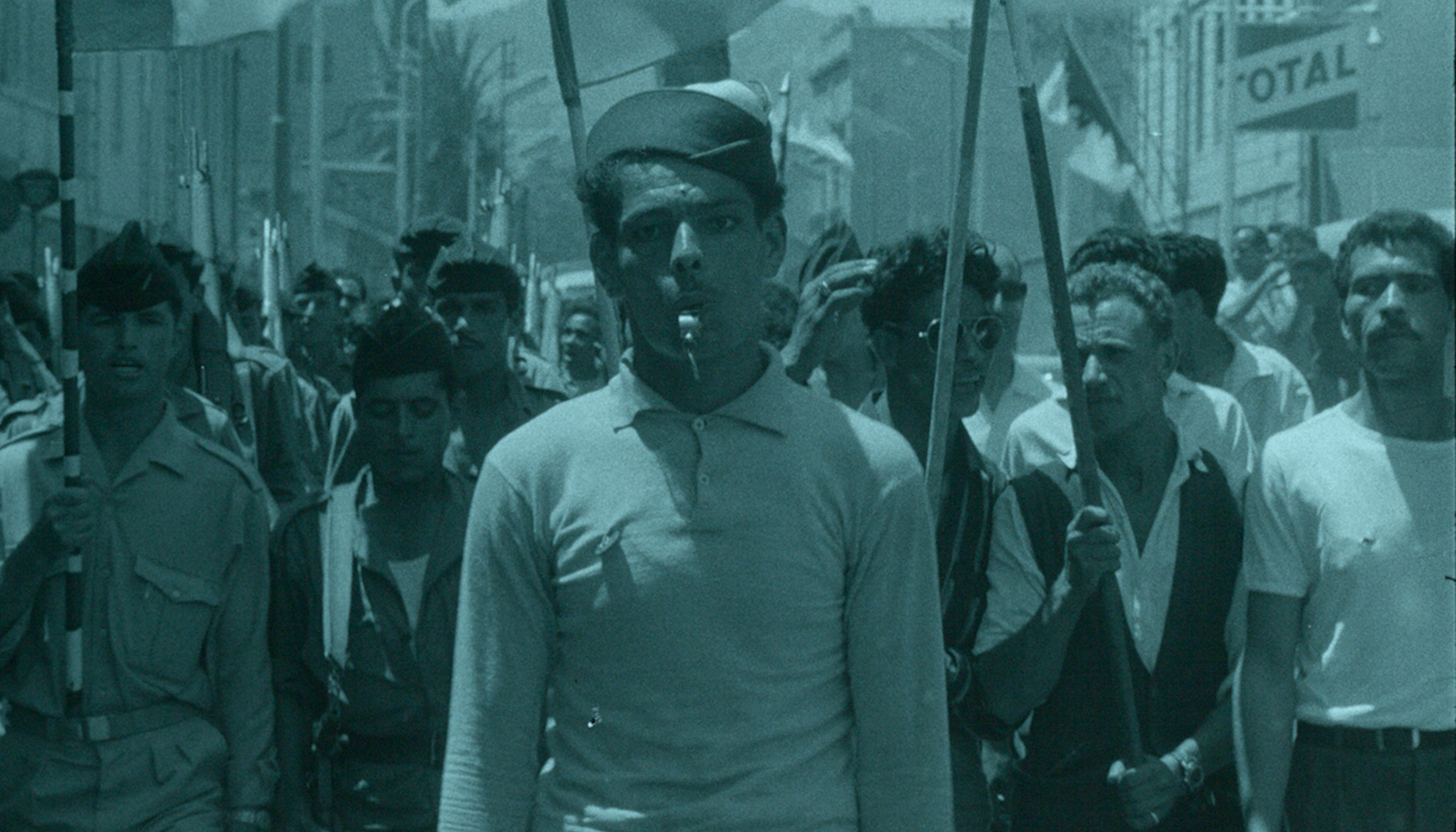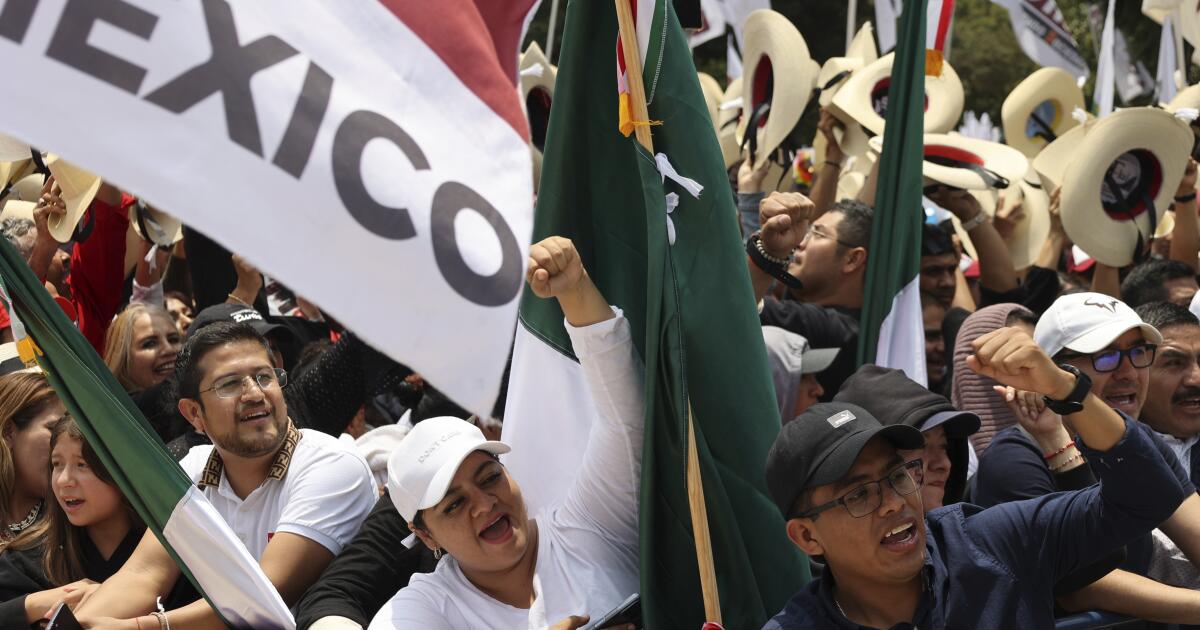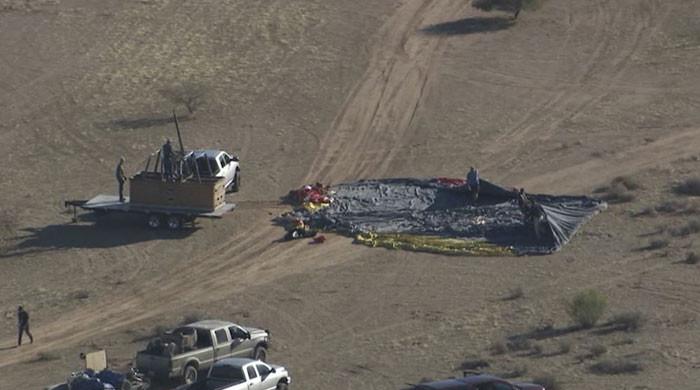Hasina, known as Bangladesh's Iron Lady, resigns and flees the country after weeks of deadly protests.
Sheikh Hasina became Bangladesh's first prime minister after her party, the Awami League, won the 1996 election. Her second term in power, which began in 2009, was marked by impressive economic growth.
But she has been accused of becoming a hard-line leader and cracking down on dissidents. Her 15-year rule is also notorious for human rights violations. The United States has imposed sanctions on the Rapid Action Battalion, an elite group linked to disappearances and extrajudicial killings.
On Monday, after weeks of protests, the 76-year-old resigned and fled the country. Here's a look at her tenure:
December 29, 2008 – Awami League wins general election and Hasina becomes Prime Minister for the second time.
February 2009 – The Bangladesh Rifles, a paramilitary force, rebel. More than 74 people are killed. Hasina's government manages to restore order.
June 2011 – The 15th Amendment to the Constitution is passed, bringing with it important changes, including the elimination of neutral caretaker governments that had governed during elections and government transitions. The opposition says maintaining the caretaker system is essential for free and fair elections.
February of 2013 – Mass protests in Shahbagh, Dhaka, demand death penalty for those who committed atrocities during the 1971 Bangladesh Liberation War.
October 2013 – The Rana Plaza building collapses, killing more than 1,000 people and highlighting the lack of safety in the textile industry, the mainstay of Bangladesh's economy.
January 5, 2014 – The Awami League wins the general election, which was boycotted by the main opposition party and its allies. Hasina wins a second consecutive term as prime minister.
January 2015 – Political unrest and violence erupted over unmet demands by the opposition Bangladesh Nationalist Party following the 2014 elections.
December 30, 2018 – Awami League wins general election amid allegations of vote-rigging. Hasina secures third consecutive term after securing 96 percent of votes.
March 2020 – Bangladesh's economy is suffering due to the COVID-19 pandemic. The lockdown is causing prices to rise, creating a cost of living crisis.
December 2021 – The United States has imposed human rights-related sanctions on Bangladesh's elite paramilitary force, the Rapid Action Battalion, and seven of its current and former officers, accusing them of involvement in hundreds of disappearances and extrajudicial killings since 2009.
2022 – Bangladesh is recording gross domestic product growth of 7.2 percent, making it one of the world's fastest-growing economies. Garment exports and remittances are driving the expansion. However, disparities in wealth distribution are widening, with the richest 10 percent of the population now controlling 41 percent of total income.
January 2024 – Hasina wins fourth consecutive term in elections boycotted by opposition.
July 2024 – Students are protesting against government employment quotas, which reserve a third of civil service jobs for descendants of people who fought in the 1971 independence war. Protests turn violent following government repression and attacks by groups linked to the ruling party.
July 29, 2004 – Protests resume, calls for Hasina's resignation grow.
August 4, 2004 – Nearly 100 people are killed during the protests, bringing the total death toll to nearly 300.
August 5, 2024 – Hasina resigns and flees the country. Protesters storm the prime minister's residence.












